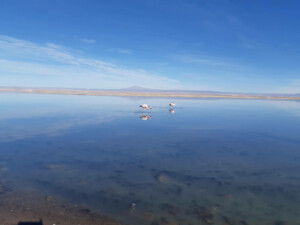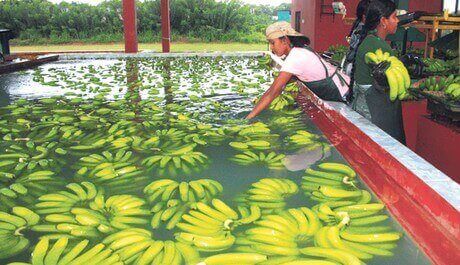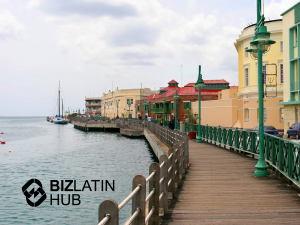The business sector in Ecuador has been booming over the past 10 years. Whether starting your own business or investing in another, Ecuador has been one of Latin America’s hubs for entrepreneurs.
Ecuador has experienced steady economic growth ranging from .1% to 5% over the past five years. Entrepreneurs and commercial actors from across Latin America and around the world are choosing to relocate to Ecuador for business.
Ecuador is Investment Friendly – Ecuador’s agriculture scene
The agriculture industry in Ecuador is becoming one of the world’s most renowned industries for investors. Ecuador’s agriculture industry has been known for producing coffee, cocoa, rice, potatoes, sugarcane, pork, beef, bananas, dairy, fish, and shrimp. The agriculture and processed food industries have generated around $1.8 billion annually, foreign investment and diversification have encouraged new businesses from around the world to take advantage of Ecuador’s agriculture industry.
Even though Ecuador is a relatively small country, it is the 7th largest producer of cacao in the world. Ecuador exports about 65% of the fine cacao produced in the world. 80% of cacao is locally grown on family-run farms, making it a lot easier to manage and maintain in Ecuador. Cacao production only continues to increase. Ecuador has top quality cacao and other agricultural products, which is why most foreign investors are drawn to the agriculture sector in Ecuador.
The main drawcard of Ecuadorian cacao is an unmatched unique floral flavor. For anyone who is looking to invest in Ecuador’s agriculture, cacao is a very reliable option.
Mining Sector in Ecuador

Ecuador’s mining sector has continued to attract foreign entrepreneurs. The mining industry has grown from US$1.1 billion this year to US$7.9 billion in 2021. According to BMI research, the nation will increasingly emerge as a mining investment hub in Latin America. We expect the incoming administration in Ecuador’s government to continue to support mining development in Ecuador. As the government continues to prioritize investment in mining, this industry is one you should keep your eye on.
Investing in the oil sector in Ecuador
Accumulated oil production since 1950 is 5,864 million barrels of oil. The oil sector in Ecuador makes up for about 50% of the country’s export earnings, and about one-third of all tax revenues. Ecuador produces approximately 500,000 barrels of crude oil per day, and almost all the oil produced is exported.
Currently, the oil sector is dominated by PetroEcuador. This is the national oil company, which controls most of Ecuador’s oil production. The second largest oil company is PetroAmazonas, which is also state-owned. The oil industry is one of Ecuador’s most reliable industries. Businesses establishing themselves in the oil industry can be sure to see healthy returns on their investments.
Ecuador’s world-renowned tourism sector

Tourism has become a priority for the government of Ecuador. In 2014, investments in Ecuador for tourism increased, growing 3 times the national average. The International Tourism Fair of Ecuador (FITE) serves as a highlight for Ecuador’s positive developments in the tourism industry. Ecuador’s unmatched biodiversity both on land and at sea (think Galapagos Islands) draw thousands of holidaymakers from around the world each year. The FITE event also offers different updates for various regional Chambers of Commerce, members of the hospitality industry, and numerous tour operators.
Furthermore, elements of high-end tourism are starting to pop up, such as luxury hotels and restaurants. These are also areas where investors should look at if they are considering investing in Ecuador’s tourism industry. One of the most popular and well-known tourist destinations in Ecuador is the Amazon rainforest. The government has shown much interest in economic growth in this part of Ecuador. As a commitment to growing the tourism sector, the government supports construction initiatives and new eco-lodges that have a connection to ecotourism activities.
The Insular Region is a unique place that supports biodiversity projects, animal and plant conservation projects, scientific research, and tourism. There are priority sectors for tourism in cities such as the capital, Quito, and Ecuador’s biggest city Guayaquil. Local Companies are exempt from paying taxes for five years.
Ecuador’s growing industries are luring investors from abroad. For business owners, Ecuador’s business opportunities and culture are one of the most business-friendly.
Textiles
The textile industry in Ecuador makes up around 15% of the non-oil industries. The textile industry is the second larger employer in Ecuador. According to the government, the textile industry accounts for 50,000 employees in direct jobs. In the year 2000, the currency became dollarized, and the industry experienced an enormous boom. The success of this industry in Ecuador is its fabric and yarn outputs. Ecuador can produce fabric and yarn several times faster than its neighbors in Central America.
Processed foods
In Ecuador, the processed food industry is the largest non-oil industry in Ecuador. The processed food industry accounts for about 55% of the non-oil industry and it generates around $1.8 billion annually. The shrimp processing industry makes up 21% of the industry. The meat industry makes up around 18% and fish makes up 16%. The food processing industry also has beverage processing and packaging, sugar processing, and sugar and cereal industries. These are minor industries, but accessible for investors. Products such as shrimp, tuna, and sugar are mostly exported while the other products are produced for the domestic market.
Biz Latin Hub: your Latin American partner
When operating in new Latin American countries, having a trusted local partner can aid in your growth and commercial success. At Biz Latin Hub, we offer a range of back-office services designed to help you understand the local market and to navigate its complexities, ensuring a successful international expansion with minimal headaches.
Contact us today to discuss how we can support you.





